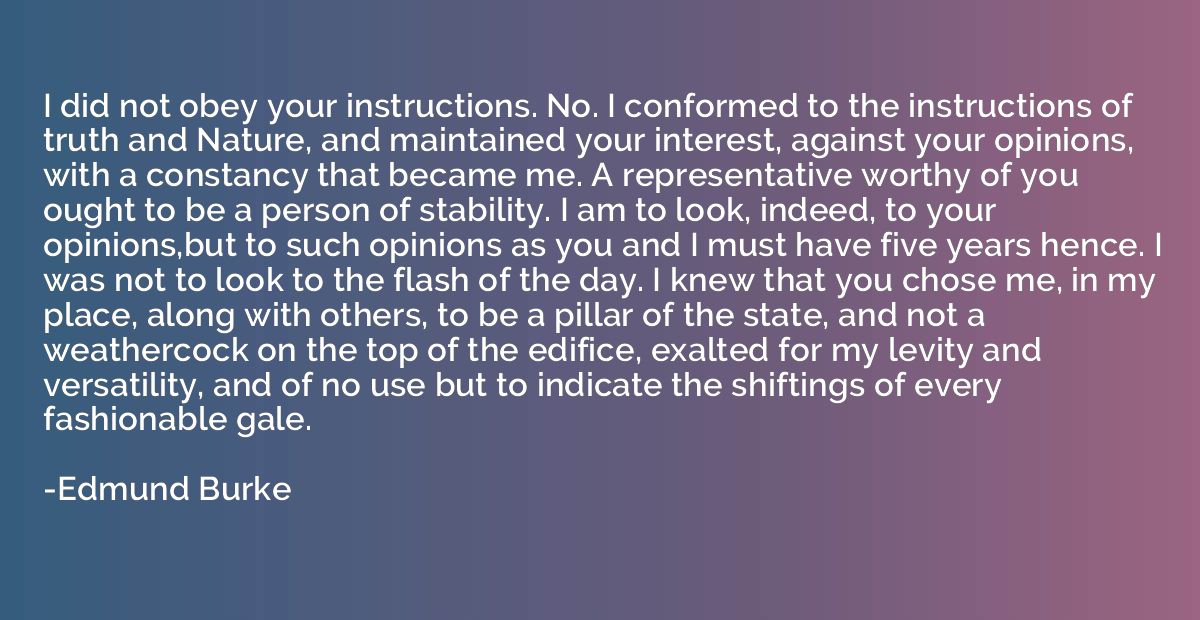Quote by Edmund Burke
I did not obey your instructions. No. I conformed to the instructions of truth and Nature, and maintained your interest, against your opinions, with a constancy that became me. A representative worthy of you ought to be a person of stability. I am to look, indeed, to your opinions,but to such opinions as you and I must have five years hence. I was not to look to the flash of the day. I knew that you chose me, in my place, along with others, to be a pillar of the state, and not a weathercock on the top of the edifice, exalted for my levity and versatility, and of no use but to indicate the shiftings of every fashionable gale.

Summary
In this quote, the speaker defends their decision to prioritize truth and natural laws over blindly obeying someone's instructions. They argue that as a representative, it is crucial to have stability and consistency in serving the interests of those they represent. Instead of succumbing to the changing tides of public opinion, the speaker emphasizes the importance of looking to the long-term perspectives and enduring values. They reject the notion of being a mere instrument of superficial trends and instead aim to be a steadfast pillar in upholding the welfare and progress of their constituents.
By Edmund Burke














